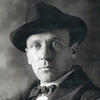Vasily Grossman (1905–1964)
Author of Life and Fate
About the Author
Grossman, a graduate in physics and mathematics from Moscow University, worked first as a chemical engineer and became a published writer during the mid-1930s. His early stories and novel deal with such politically orthodox themes as the struggle against the tsarist regime, the civil war, and the show more building of the new society. Grossman served as a war correspondent during World War II, publishing a series of sketches and stories about his experiences. Along with Ehrenburg, he edited the suppressed documentary volume on the fate of Soviet Jews, The Black Book. In 1952 the first part of his new novel, For the Good of the Cause, appeared and was sharply criticized for its depiction of the war. The censor rejected another novel, Forever Flowing (1955), which was circulated in samizdat and published in the West. The secret police confiscated a sequel to For the Good of the Cause, the novel Life and Fate, in 1961, but a copy was smuggled abroad and published in 1970. Grossman's books were issued in the Soviet Union in the late 1980s and have met with both admiration and, on part of the nationalist right wing, considerable hostility. (Bowker Author Biography) show less
Series
Works by Vasily Grossman
A Writer at War. Vasily Grossman with the Red Army 1941-1945 (2005) — Author — 1,092 copies, 22 reviews
The Treblinka Hell: Photographic Album of Martyrs, Heroes, and Executioners (1944) 69 copies, 4 reviews
Grossman Vasilij Semenovic 2 copies
Mõned kurvad päevad : [jutustused] 2 copies
Kolchugin's Youth 1 copy
Za pravoe delo dilogija 1 copy
Избранное, 2 тома 1 copy
Armenische Reise: Die Reise des großen russischen Schriftstellers an die Ränder des Imperiums 1 copy
Stepan Koltschugin - Band 2 1 copy
Stepan Koltschugin - Band 1 1 copy
Življenje in usoda 1 copy
Stjepan Koljčugin 1 copy
Associated Works
MHQ: The Quarterly Journal of Military History — Spring 2015 (2015) — Author "Experience: This Terrible Truth" — 3 copies
Moderne russische Erzähler — Author — 2 copies
Tagged
Common Knowledge
- Canonical name
- Grossman, Vasily
- Legal name
- Grossman, Vasily Semyonovich
Гроссман, Василий Семёнович - Birthdate
- 1905-12-12
- Date of death
- 1964-09-14
- Burial location
- Troyekurovskoye Cemetery Moscow, Russia
- Gender
- male
- Nationality
- Russia
- Country (for map)
- Russia
- Birthplace
- Berdichev, Ukraine, Russian Empire
- Place of death
- Moscow, Soviet Union
- Places of residence
- Moscow, Soviet Union
Geneva, Switzerland
Kiev, Ukraine, Soviet Union - Education
- Moscow State University
- Occupations
- author
journalist
war correspondent
chemical engineer - Organizations
- Red Star (Krasnaya Zvezda)
Unity - Awards and honors
- Red Banner of Labor
- Short biography
- Born in the Ukraine in 1905, Vasilly Grossman published his first novel 'Stepan Gluchkauf 'in 1933. Grossman was Jewish and his place of birth was one of the largest Jewish communities in Eastern Europe. Grossman is most notable for his work as a journalist during WWII and his eyewitness accounts of the fall of Stalingrad, the fall of Berlin and the Holocaust. He published the first account of a German death camp written by a journalist. He went on to publish a novel about Stalingrad in 1952 called "For a Just Cause" and in 1960 "Life and Fate".
Members
Discussions
Life and Fate featured on BBC R4 in Fans of Russian authors (September 2011)
Life and Fate: Part 1 in Group Reads - Literature (November 2009)
Reviews
Lists
Jewish Books (1)
Five star books (2)
War Literature (1)
Awards
You May Also Like
Associated Authors
Statistics
- Works
- 65
- Also by
- 8
- Members
- 7,576
- Popularity
- #3,223
- Rating
- 4.2
- Reviews
- 208
- ISBNs
- 339
- Languages
- 26
- Favorited
- 42
























Zij die het wagen om dit boek te lezen, kunnen het beste even een bladwijzer plaatsen bij de namenindex. De lezer die het boek doorleest, wordt rijkelijk beloond met een zeer veelzijdige belichting van de slag om Stalingrad. Vasily toont wederom aan dat hij de Rode Tolstoy van het Sovjetleger was. Hij belicht de oorlog vanuit het oogpunt van een huisvrouw, een kind, een oma, een frontsoldaat, een generaal, een wetenschapper en meer. Hij spaart ook de hoofdkarakters niet, zoals het lot een persoon niet spaart in de oorlog.
Leven en Lot was wellicht controversiëler en filosofischer, maar Stalingrad is een prachtige aanvulling (en bleek eerder geschreven te zijn dan Leven en Lot) op de trilogie. Het is te complex om een beschrijving te geven van het boek dat nu eindelijk na zoveel jaren in het Nederlands te lezen is. Een aanrader voor iedereen die van Tolstojaanse boeken houdt, de menselijke psyche wil begrijpen in plaats van de strategie van de oorlog, of genoeg heeft van de typische heroïsche verhalen uit Amerikaanse oorlogsboeken. Vasily wist wederom de Russische ziel in zijn volle glorie op te tekenen.
Laat ik eindigen met een quote van Vasily Grossman zelf uit ‘Een Schrijver in Oorlog’: “Misschien vraagt iemand zich af: 'Waarom wil je hierover schrijven, waarom wil je je dit allemaal herinneren?' Het is de plicht van de schrijver deze afschuwelijke waarheid te verkondigen, en het is de burgerplicht van de lezer daarvan kennis te nemen. Eenieder die zich afwendt, de ogen sluit en doorloopt, schoffeert de nagedachtenis aan de doden. Eenieder die deze waarheid niet kent, zal nooit kunnen begrijpen met wat voor vijand, met wat voor monster ons Rode Leger zijn dodelijke strijd aanbond.”… (more)